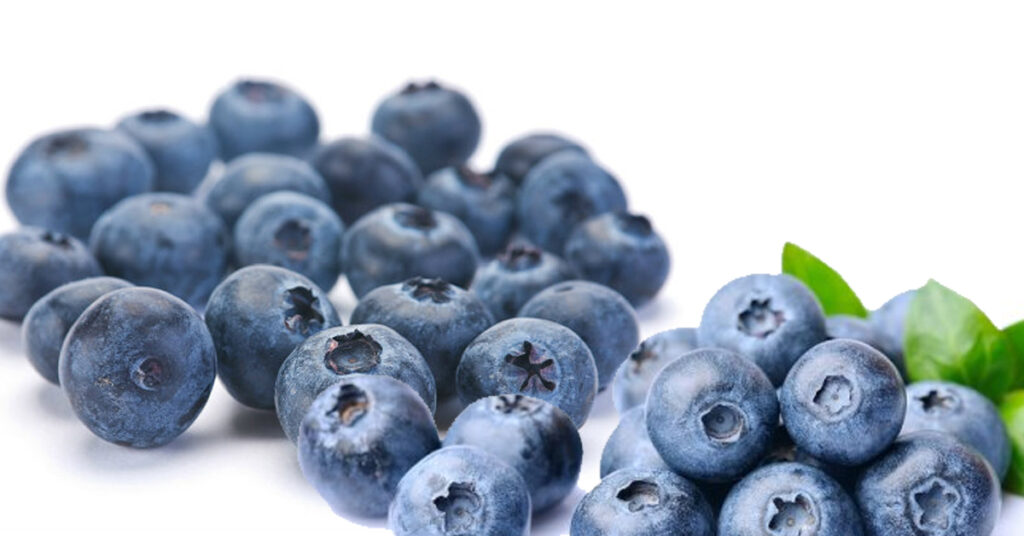We are approaching a period of the year when we will find more and more forest or so-called berry fruits. The group of such fruits includes raspberries, blackberries, chokeberries, cranberries, strawberries, and blueberries. In today’s article, we will pay attention to the blueberry and we will look at what makes this fruit so healthy and why we should eat it more often in the coming period.

Table of Contents
Nutritional characteristics
Blueberry is a plant that grows as a shrub and blooms from May to June. Its edible fruits ripen from July to September. They are harvested in summer and have a characteristic dark blue color with a pleasant and interesting sour-sweet taste. They are used to make various sweets, jams, juice, marmalade. They are also extremely tasty when consumed fresh. It is not uncommon to find dried berries that also have numerous uses.
Blueberry is considered a fruit that has high nutritional value, and they are low in calories and in their composition water is present with as much as 85%.
100g blueberry contains :
- 57 calories
- 14g carbohydrates (of which 2.4g fiber and 10g sugar)
- 0.3g fat
- 0.7g protein
In addition to this macronutrient composition, blueberries also contain satisfactory amounts of vitamins C and K, as well as the mineral manganese.
What are the health benefits of blueberries?
1. They are rich in antioxidants
The dark blue color of blueberries is actually a great indicator that they are fruits that contain antioxidants. Namely, some research shows that blueberries belong to the category of foods with one of the highest concentrations of antioxidants in its composition. They contain vitamin C, as well as phenolic acid – compounds with known antioxidant character. Their alluring and recognizable color comes from compounds called anthocyanins, which are powerful antioxidants that belong to the group of flavonoids. In addition to the dark blue color of blueberries, they are also responsible for the color (red, purple, blue, etc.) of almost all forest fruits. Anthocyanins are thought to be the compounds responsible for most of the health benefits of blueberries. These compounds protect the body from oxidative stress and help neutralize harmful free radicals.
2. They can reduce inflammatory processes in the body
Inflammation is considered to be one of the main causes of many diseases. Blueberries are thought to have a partial protective effect mostly due to their antioxidant and anti-inflammatory effect.
In one study, people taking supplements containing blueberry anthocyanins had a 38-60% reduction in inflammatory markers. In addition, a smaller study showed that daily consumption of 330ml of blueberry juice significantly reduced inflammatory markers in respondents.
3. May help regulate blood sugar
Perhaps one of the most well-known and used effects of blueberry is precisely in terms of blood sugar. They are often used by people with type 2 diabetes. Some experts believe that this effect of blueberries is due to their positive effect on digestion, which leads to reduced decomposition and absorption of carbohydrates in the intestine. This means that blueberries work and have a similar effect to some medications for lowering and controlling blood sugar levels.
Some studies carried out on animals have shown that anthocyanins in blueberries can assist in the creation and secretion of insulin in the body.
A study using blueberry extract equivalent to 50g of fresh fruit found that it successfully lowered blood sugar levels in diabetics.
4. Good for heart health
Blueberry is a fruit that is rich in vitamin K, which has a preventive effect on the formation of blood clots. In an 8-week study, 35 respondents consumed a mix of different forest fruits, including blueberries. At the end of the study, they had improved blood pressure, better platelet function, and improved levels of “good” HDL cholesterol. Other research shows that anthocyanins present in the berries can strengthen blood vessels, improve circulation and reduce the risk of arteriosclerosis. Also, such antioxidant compounds can help regulate the levels of unwanted LDL cholesterol.
5. They can improve digestion and help with diarrhea
Blueberries have long been used as a remedy for indigestion, malaise, and diarrhea. This is thought to be due to the tannins present (responsible for the moderately sour taste of the fruit ) and pectins. These compounds are thought to have a calming effect on inflammation of the digestive tract.
How to implement blueberries in our daily diet?
As long as they are sold fresh, there are many ways to utilize blueberries. They can be consumed fresh, dried, and can be combined and used in numerous recipes. They are a great addition to pancakes, muffins, or any type of jam, cake, etc. They can also be used in shakes, fruit salads, and as an addition to oatmeal in your breakfasts.
Often jams are prepared from them that can be used throughout the winter. Of course, be careful and keep in mind that these processed foods are high in sugar.
If they are not fresh, there is always the option to get them frozen and use them in many ways. Prepare a delicious fruit smoothie with yogurt, oats, banana, and blueberries.
